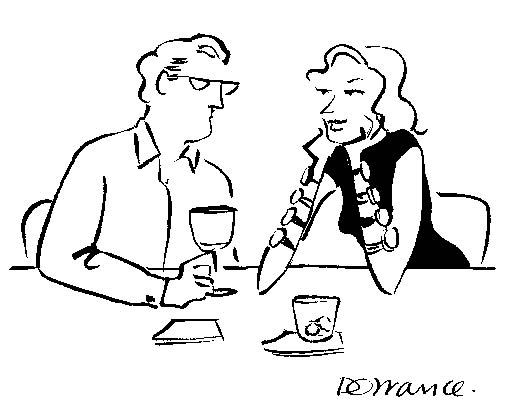That interview with Kenneth Clarke, QC, was not so much a disaster for his political career as yet another knockout blow to the possibility of hearing honest answers from leading politicians. Who now will be prepared to go ‘live’ on radio to talk about sensitive policies?
I didn’t catch the conversation in real time, when the Justice Minister’s comments on rape and how it should be punished might have sounded much more appallingly insensitive (most of the reports of what he actually said have been wildly inaccurate). Listening to it later, after the furore had erupted, the person who came across as most rude, thoughtless and arrogant was his interlocutor on the Radio 5 Live phone-in programme, Victoria Derbyshire. ‘Can you react to that, Mr Clarke,’ she demanded, after ‘Leeroy in Walsall’ had told us that he was never again going to vote Tory because of what Clarke had just said. ‘React to that, Mr Clarke,’ Derbyshire butted in, as if desperate to turn her programme into headline news.
What surprised me most about the interview was Clarke’s choice of words, so sloppy and imprecise for a lawyer. It was as if he was talking at home while washing up the dishes, rather than on air, on the BBC. Was he taking his audience seriously? But at least he did sound as if he was saying what he thought, rather than repeating the diktats of a carefully-constructed-to-be-meaningless government directive. When ‘Lesley in Hertfordshire’ asked him whether he had ever been a victim of crime, he bumbled along for a bit before admitting that, yes, he had, but not for about ten years, when a thief picked his pocket in Portugal. That’s what exposed Clarke as being out of touch. He doesn’t live, has never lived, with the daily threat, or consequences, of crime.
He also doesn’t realise, perhaps, the size and power of the Radio 5 Live audience. It was bound to get nasty, talking with the phone-in crowd about the effects on rape crime of his government’s proposed changes to sentencing policy. Would he have chosen his words more carefully if he’d been talking on Radio 4? Or Radio 2?
Much more extraordinary on radio this week was the sound of a brain ticking over, given to us by the artist Susan Aldworth on Between the Ears (Radio 3, Saturday night). Aldworth became interested in the workings of the brain, and what this reveals about personality, philosophy, the functioning of life itself, ever since she collapsed in her studio ten years ago and was rushed to hospital, where the doctors linked her up with a brain imaging machine to find out what was going on. There she was lying on a hospital bed and watching her thoughts on a TV screen as they flickered through her nerve cells. How weird is that, to watch the inside of your brain at work?
In ‘Anatomising a Portrait: An Epileptic Journey’ (produced by Sara Jane Hall) Aldworth took us through the stages of making a portrait of her friend Max Eilenberg for an unusual commission from St Thomas’ Hospital and the National Portrait Gallery. Eilenberg has suffered from epilepsy since he was a teenager. Aldworth wanted to capture what it felt like to have a seizure, that moment when you’re being but you’re not feeling your being. Her research involved not just looking at EEGs of Max’s brain, which show the changes to the electrical pulses as they move through the hypothalamus. She also talked to Professor Miles Whittington and his colleague Dr Fiona LeBeau who take small slices of brain tissue and subject them to epileptic seizures (don’t ask me how, but it’s something to do with passing a current through them). If you look at what’s happening to the tissue through a monitor, you can see what look like soundwaves. But what would these soundwaves actually sound like if you translated the digital images into digital sound?
At first all you can hear is a gentle burbling sound. It’s quite random, nothing ordered, rather boring in fact. But as the agitation of an epileptic episode begins to stir in the physical body so a weird sound can be heard above the burbling. Eerie, haunting, intense, a distant cry of anguish. It reminded me of the sound of Chekhov’s ‘breaking string’, that stage direction in Act II of The Cherry Orchard about which many academic papers have been written in an attempt to decipher what Chekhov wanted the audience to hear coming from somewhere off-stage. Aldworth herself described it as sounding ‘like a screech owl taking off’.
Intercut with Aldworth’s thoughts was the story of Max’s epileptic history. To avoid the fits, he has to take the medication. I’ve been ‘obtunded’, he said, without pity. ‘I’ve not felt awake for years. There’s a level of alertness and I can’t get there…’






Comments